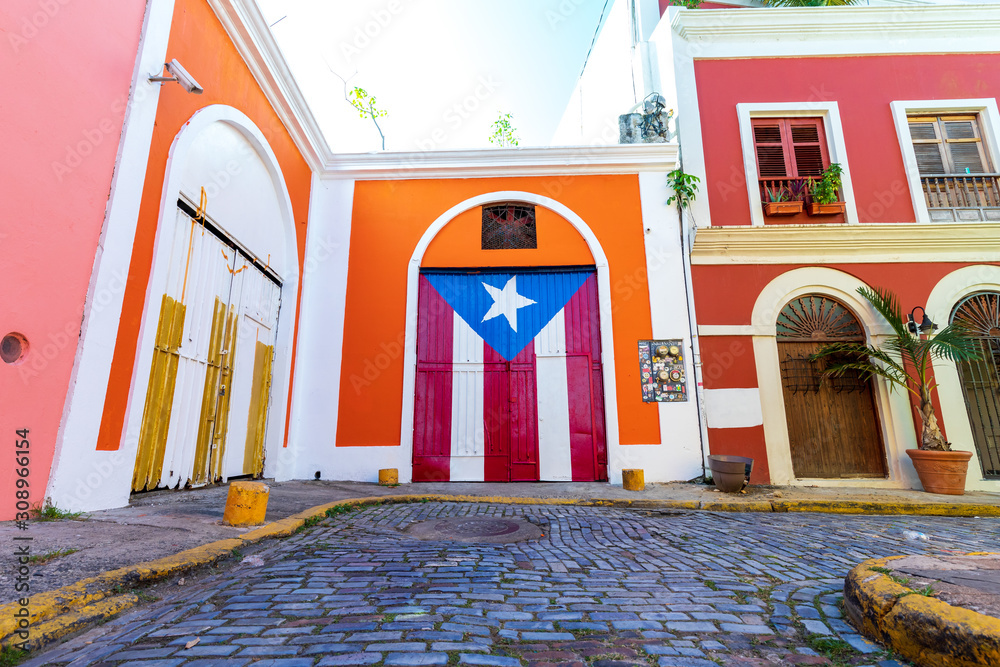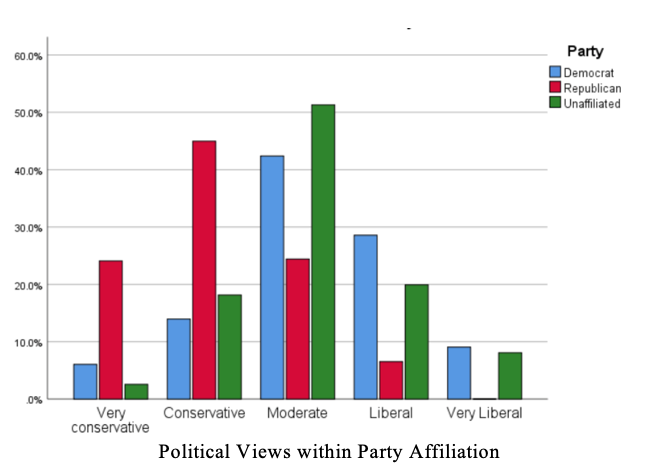
Since the beginning of territorial rule in Puerto Rico, there have been arguments for and against statehood. Currently, Puerto Rico is under Commonwealth status. This gives them limited rights: they are considered U.S. citizens and can hold and vote in local elections, but they are not represented in Congress nor can they vote in federal elections. Many movements for and against Puerto Rican statehood began and flourished during the 1960s after Puerto Rico was declared a Commonwealth.
Independence movements were expressed through many political parties, from the Macheteros to the Puerto Rican Nationalist Party. The most famous leader of the PRNP was Pedro Albizu Campos, an inspiration for many and a tyrant to some. He was fighting for independence as early as the 1930s. These movements broadcasted their message in many ways, most famously by violently ambushing federal facilities, not only in Puerto Rico but also in places where Puerto Ricans had migrated like New York, Hartford, and Chicago, in order to spread awareness about what was happening in Puerto Rico. This in turn did not make Puerto Ricans look good in the eyes of many Americans and Puerto Ricans, as not everyone believed that violence could help further along with independence. Nationalist riots became a political weapon, giving a group for Puerto Rican politicians to condemn, to try to make themselves look good in terms of the political state, and for their support of Commonwealth status. Even though many attempts failed, these movements encouraged democratization through national liberation.
Whilst the nationalist groups were organizing, at the end of World War Two, the U.S. enacted Operation Bootstrap in order to help Puerto Rico become industrialized so that the U.S. could make a profit. Because Puerto Rico had shown to be a place where the textile industry could set up shop, farmers who relied on agriculture in order to sustain themselves had lower food production and had to rely on the importation of food, which caused higher prices. The island had already been exploited for centuries agriculturally, and exploiting them industrially had negative ramifications. The U.S. consistently dominates the economics of the island, without consideration of those who live there. 76 percent of Puerto Rico’s wealth produced went directly to the U.S.1 Ultimately, the U.S. put profit above citizens’ lives and exploited Puerto Rican land, using the military to suppress movements that go against them and putting their own government officials despite the freedom of self-determination, democratic values, and allocation of Puerto Rico’s own government.
Many arguments exist against statehood in Puerto Rico. Many have dealt with the repercussions of land use for urbanization. Puerto Ricans have only the illusion of self-determination, and even have a complex over their own language, as Spanish has become Spanglish. American businesses have claimed space in order to get tax breaks, and Puerto Ricans facing these injustices aren’t subjected to the true democratic nature that the rest of the United States enjoys. The effects of American colonialism on Puerto Rico are seen through stunted economic growth, cultural and political identity conflicts, poverty among Puerto Ricans nationwide, oppressive militarization, and the idea that Puerto Ricans are second-class citizens2. Many don’t want to follow this status quo of becoming a full part of the U.S., believing it’s illusory; being dependent on those who virtually destroyed them1.
With 3.5 million people living on the island, 2.8 million registered to vote, and a 68% voter turnout in local elections, the effects of Puerto Rican statehood would have a large impact on U.S. elections. This may be another reason why Congress has been reluctant to pass the statehood bill and consider finally democratizing the island. This influx of new voters would have an effect on federal politics, especially considering the widespread party affiliation. Many Puerto Ricans identify as moderate, to liberal, with smaller populations of very liberal and very conservative voters. If they were to be declared as a state, they would gain 2 seats in the Senate and 5 seats in the House of Representatives. This would have the potential to completely change the political landscape.

The United States must include Puerto Rico as a state, especially if it will never allow them to become an independent nation. Places such as Hawaii and Alaska which have a similar history of colonialism, stolen land, and resource depletion have had the ability to democratize and become states. The same must happen for Puerto Rico, the reasons behind the many years of Commonwealth status are based on racist ideals. And while this country was built on racism, if the U.S. truly wants to end systematic racism they must release their control on their “colony” and allow them the rights that are protected in the constitution that guarantees democratic principles, values, and rights.
1. Santiago, Roberto. Boricuas : Influential Puerto Rican Writings–an Anthology. 1st ed., One World, 1995.
2. Pantojas-García, Emilio. Crónicas del colapso: economía, política y sociedad de Puerto Rico en el siglo veintiuno. Puerto Rico: Ediciones Callejón, 2014.

It seems to me that the best thing for Puerto Rico might be to obtain complete independence from the U.S. You have explained some of the numerous ways in which the U.S. takes advantage of the status of Puerto Rico such as taking the economic benefits and maintaining a somewhat strong grip over their government, and it seems to me that Puerto Rico has not, in recent years, seen many benefits of this relationship.
I don’t think that admitting Puerto Rico as a state would solve many issues, rather it would create more. Having Puerto Rico finally get representation would dramatically shift the political scales and cause a lot of chaos as parties and officials attempt to figure out how to use Puerto Rico to their advantage.
There also is the cultural argument to be made. Puerto Rico has a rich history and culture that is very unique when compared to the U.S. I think it would be best for Puerto Ricans to continue to foster their own identity and culture, as well as build a strong government and economy completely free from the influence of the U.S.
You argue that the U.S. must adopt Puerto Rico as a state if it will not allow it to become an independent nation. I would argue that it would within Puerto Rico’s interests to sever ties with the U.S. and claim its independence.
Hi Isabella!
In my first blog post, I wrote about D.C. statehood and while reading your blog post, I found some similarities between the two cases. For both D.C. and Puerto Rico, their status of a territory harms both their economy and their representation in Congress. A key difference, however, is that while it is in the best interest of D.C. residents to be considered a state, your blog post reveals that for some Puerto Ricans, independence is preferred over statehood.
The fight for both Puerto Rican independence and statehood is relevant to our class discussions on oppositional strategies. It appears that the Puerto Rican Nationalist party did not find success with their protests because they used more radical and extra-institutional strategies. As a result, the movement garnered little support from moderate Puerto Ricans and the violence decreased their legitimacy. As we’ve seen in our class readings, Puerto Rico would have a greater chance of independence if they used moderate, institutional strategies because it would preserve their legitimacy, mobilize popular protest, and increase the cost of repression.
Like D.C., granting Puerto statehood could change Congress’s political landscape. It is because of this that many GOP politicians do not support statehood. But by using nonviolent campaigns and possibly uniting the campaign for D.C. and Puerto Rico, it is possible to mobilize a large population and break loyalty amongst GOP politicians.
I really enjoyed your blog post! I know a bit in general about the struggle for Puerto Rican statehood but I definitely learned a lot more about the ways in which the US, as a colonial oppressor, has exploited the island for resources. I follow AOC really closely and a few months ago she visited Puerto Rico and to met with some amazing community based groups working on the issue of statehood. It seems, based on what I have heard, to be something that a lot of Puerto Ricans want. To your point about fears of inclusion of Puerto Rico as a state changing political demographics I completely agree that that is part of the reason for the hesitancy. I also think that racism plays a huge role in the lack of willingness to put statehood to a vote. Hearing the hateful anti-immigrant rhetoric that spews from the mouths of politicians regarding our immigration policies, I unfortunately think that the same arguments will be made here. A lot of GOP politicians will argue that statehood will only serve the Liberal Democratic agenda but your graph proves that Puerto Rico is significantly more moderate than the prevailing discourse would suggest.
I think this topic is so important and fascinating to think about. How would making Puerto Rico a state impact the political landscape? How would it impact GDP and other economic factors? How would politicians target legislation (like federal funding for schools, healthcare, etc) that would directly impact Puerto Rico negatively or positively? I think so many questions arise from this debate that this blog post is a great topic to talk about. I really liked how you touched upon all of these aspects in your writing. I wonder if another factor the United States has not considered Puerto Rico statehood is that it is simply racist. The latin name of Puerto Rico is not “American” like the rest. It also begs the question of whether the other U.S. territories would feel left out if only Puerto Rico became a state. How would they be impacted? There are truly no one solution fits all to these questions. I think the United States needs to take a hard look in the mirror and truly assess the situation with Puerto Rico. No more exploitation and lack of urgency in the matter.
This is a very interesting piece. I have always found the existence of territories within the United States as incompatible with our claims to democracy. Puerto Rico’s lack of representation is disturbing especially considering how much government policy affects the island. This is a really interesting examination of the statehood/independence discussion. I think it has become clear that the system in place right now just is not working. It is interesting to think about the political ramifications of statehood and how that may be influencing how some politicians are viewing the subject. You make good points about the merits of both statehood and independence and it made me think a little deeper about the subject.